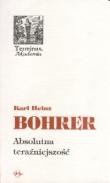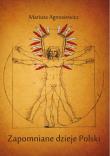
|
« Nauka Why We Need To Teach Secular Humanism What is undoubtedly the first course in secular humanism at a technical/vocational institute has sparked controversy and plaudits in Albuquerque, New Mexico. Foundation member Kaz Dziamka's honors course, "The American Humanist Tradition," at the Albuquerque Technical Vocational Institute has resulted in features in the Albuquerque Journal, the newspaper of his institute, and other periodicals. Steve Brewer with the Journal wrote: "Hollywood's not likely to come knocking on Kaz Dziamka's door, though in many ways his story mirrors 'Mr. Holland's Opus' or 'Dead Poets Society,' movies about teachers brimming with enthusiasm for their subjects. "Dziamka's passion is neither music nor poetry. It's humanism, a controversial way of looking at the world that doesn't include God." Kaz' course, „The Humanist Tradition of American Democracy" has been approved for the spring 1997 course offerings. A version of this article was reprinted in the TVI community college newsletter this spring. Editor, Freethought Today It is time to recommend the adoption of secular humanism in the curricula of all public educational institutions, particularly high schools and junior colleges. This requirement will, of course, spark an endless controversy because secular or scientific humanism (the two are synonymous) teaches that nobody has the monopoly of truth; that if human beings don't solve their problems, then nobody — no God or gods-will. Christian theologians and educators talk eloquently about America's Christian heritage, about America as a "City upon a Hill," and about a personal and caring god; but if we have to be honest to our students, we must tell them that there is not an iota of scientific evidence that such a being exists. Science is revealing a universe infinitely complex yet knowable; a universe neither friendly, nor hostile, nor purposeful. According to Richard Dawkins, an outstanding modern biologist, evolution — the scientific law of natural selection discovered by Charles Darwin — "has no purpose in mind. It has no mind and no mind's eye. It does not plan for the future. It has no vision, no foresight, no sight at all. If it can be said to play the role of watchmaker in nature, it is the blind watchmaker." The universe also seems to be a godless universe. As Carl Sagan and Stephen Hawking have pointed out, it is a universe „with no edge in space, no beginning or end in time, and nothing for a Creator to do." According to modern astronomy, the observable universe seems to expand and contract in an apparently endless cycle of birth and death, of explosion and implosion: a mind-boggling and mindless succession of big bangs, supernovae, and black holes. The universe couldn't have been created „out of nothing" at a particular time in the past, as religionists claim, if only because it is still being „created." Just recently, NASA released spectacular pictures of the cradles of star creation from cosmic dust in the Eagle nebula in the constellation Serpens, 7,000 light-years away. We are on the verge of discovering new planets and life in solar systems outside our own. In fact, two such planets may already have been discovered by astronomers from San Francisco State University. Short of being "God's only son," Jesus of Nazareth as described in the Four Gospels of the New Testament was apparently a well-meaning but undereducated and prescientific Galilean carpenter who thought he would return, "within a generation," after his death to save humankind. It is a scientific fact that He did not. The Bible says nothing about the Doppler effect or red shift, nuclear fusion, alternating phosphate and deoxyribose units, or quasars. It talks about the Earth as a special creation of God in the center of the universe with Heaven above and Hell below. None of this is verifiable and true. In the Bible, the universe is described as a „firmament" (Genesis 1:6, Psalm 19:1). No such thing exists. If God's only son had thought human beings at the time could understand only simple moral fables, but were incapable of comprehending the modern science of astronomy or physics, then at least He should have reminded them of the great Greek astronomer Aristarchus from Samos, who in the third century before our era, had already discovered that the Sun, not the Earth, is at the center of our planetary system. (Aristarchus' heliocentric theory was eventually popularized eighteen centuries later by Copernicus and became accepted only after a vicious, murderous campaign by the Christian Churches to suppress scientific research had failed.) God's son should have mentioned Eratosthenes and Archimedes, the most accomplished scientists of the ancient world. Yet, again, Jesus did not. But let me repeat: Nobody has the monopoly of scientific or religious "truth" — at least not in a democracy like the United States. The role of the government is to be an impartial arbiter between different contending factions in a free and open society. „The great desideratum in Government," said James Madison, the Father of the Constitution, is that it be "sufficiently neutral between the different interests and factions." Scientific humanism, like any other ism or faction, must be allowed to compete freely in a democratic market of ideas. It should be neither promoted nor opposed by the federal and local governments. But how can the U. S. government be „sufficiently neutral" if none of the members of the U. S. Congress is a scientific humanist? If over ninety-nine percent of our senators and representatives, including the President, publicly pray to Hebrew gods and take a public oath on the Bible in direct violation of Article 6, Section 3, of the Constitution? If the First Amendment is repeatedly circumvented by the powerful Christian factions when, for example, they tamper with and distort the secular meaning of the original draft of the Pledge of Allegiance by illegally adding the Christian superstition „one nation under God" and by printing „In God We Trust" on our money? The advantage of scientific or secular humanism is that it teaches us to be self-reliant and rational, that we mustn't wait for or pray to gods to solve our problems. Scientific humanists make claims that are verifiable and correctable, whereas religionists believe in dogmas, which are neither. Clearly, secular humanism is not a religion. To argue that secular humanism is a religion-as the Christian Coalition does-is to argue the absurd idea that science is a religion. Gods may exist somewhere in intergalactic space, but they don't seem to be concerned. Such a verifiable observation was made over two millennia ago by Protagoras („the first great humanist"), Epicurus, and Lucretius-all outstanding ancient agnostic philosophers. Today agnosticism is still our best pragmatic philosophy of life. This is why most humanists are either agnostics or atheists. But if gods don't care, then what's the difference between an agnostic and an atheist? Even if they exist, gods don't respond to prayers and do not break at will Newton's Law of Universal Gravitation or any scientific law ever discovered by man or woman. So why pray in the classroom or in the Capitol? What's left? Human intelligence, human compassion, humanitarian science — as I told my students in the American Humanist Tradition class I taught at the Albuquerque Technical Vocational Institute in the fall of 1995. Technology, if abused, may destroy us all-but so will Nature when the Sun, „whom" we used to worship, eventually burns up its hydrogen fuel and becomes a red giant, reducing all living things to ashes. In the long meantime (which may take up to eight billion years), we will have only us to blame if we annihilate ourselves sooner than eventually being annihilated by the Sun or some other natural cosmic disaster. It is high time we brought the science of secular humanism to the attention of all our high school and college students. We must teach them to study freethought and rationalism from which modern science was born and upon which it is based. We must teach them to make very informed decisions about Nature, human life, and the universe. Those who cannot make such a decision will eventually have to choose between the Pope or Carl Sagan, between Pat Robertson or Thomas Jefferson, between what their grandpa told them and what Albert Einstein tells them. The Department of Education, if it survives the present onslaught by Christian Republicans, must show its commitment to science and reason by allowing secular humanism to be part of every scientific and educational program in the country. The Department can no longer afford to avoid this responsibility to our students, while humanists are bogged down in endless debates with politically influential religionists about evolution, creationism, school prayer, and abortion. Dogmas of whatever nature-religious, political, moral-confuse and can permanently cripple the young mind. Public educators have no business supporting prayer or promoting Christian metaphysics. Religious indoctrination, if at all necessary, must be left at home and in the churches, not in the public school. If we disallow or continue to avoid teaching secular humanism in our public schools, we may destroy our only hope to survive the current environmental and political crises, we may destroy our only hope to create a better life for our children-without the horrors of the Holy Inquisition, religious wars, and murders committed in the name of „God." (First published in Freethought Today, June/July 1996, and the American Rationalist ©, Sept/Oct 1997)
« Nauka (Publikacja: 31-05-2003 Ostatnia zmiana: 06-10-2003)
str. 2468 |
|||||||||||||||||||||||||||||||||||||||||||||||||||||||||||||||||||||||||||||||||||||||||||||||||||||||||||||||||||||
| [ Regulamin publikacji ] [ Bannery ] [ Mapa portalu ] [ Reklama ] [ Sklep ] [ Zarejestruj się ] [ Kontakt ] Racjonalista © Copyright 2000-2018 (e-mail: redakcja | administrator) | ||




